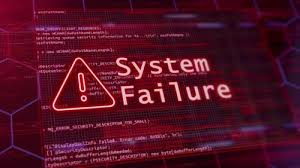9 Essential PMO Job Descriptions for IT Project Managers
Explore essential PMO job descriptions for IT project managers to enhance recruitment efforts.
Overview
The article underscores the critical job descriptions essential for various roles within a Project Management Office (PMO), particularly for IT project managers. It articulates the responsibilities and skills necessary for positions such as:
- PMO Manager
- PMO Analyst
- PMO Consultant
How do these roles collectively enhance project efficiency and ensure alignment with strategic objectives? By detailing these aspects, the article demonstrates their significant contribution to achieving higher success rates in organisational initiatives. Understanding these roles is vital for any IT project manager looking to optimise project outcomes and drive strategic alignment.
Introduction
The landscape of project management is rapidly evolving, with organisations increasingly recognising the critical role of the Project Management Office (PMO) in driving success. As the demand for skilled professionals in this domain surges, it becomes essential for both candidates and employers to understand the specific job descriptions and responsibilities of various PMO roles.
What challenges do organisations face in aligning these roles with their strategic objectives? How can tailored recruitment solutions enhance this process?
This article explores nine essential PMO job descriptions for IT project managers, shedding light on the skills and competencies required to navigate the complexities of project management effectively.
Bristow Holland: Tailored Recruitment Solutions for PMO Roles
Bristow Holland stands at the forefront of tailored recruitment solutions for PMO roles, adeptly addressing the unique needs as specified in the PMO job description for both candidates and employers. This specialised approach not only connects skilled professionals with organisations eager to enhance their programme coordination capabilities but also ensures that candidates align with the company culture.
Why is this alignment important? Organisations that prioritise cultural fit experience a remarkable 30% increase in productivity. Moreover, companies that implement tailored strategies in talent acquisition witness a 30% reduction in time-to-hire and a staggering 50% increase in candidate engagement. By focusing on these critical elements, Bristow Holland significantly boosts the likelihood of successful outcomes, thereby enhancing the overall efficiency of team operations.
Our process begins with an insightful conversation, where we delve into your career journey, expertise, and aspirations. This step is crucial to understanding your priorities, including salary expectations and desired benefits. We also help refine your mindset, keeping you focused and ready for the job search ahead.
As the demand for programme leaders surges—job growth in this domain is projected to escalate across various sectors, with an estimated need for around 25 million new programme professionals globally by 2030—Bristow Holland’s personalised strategies are indispensable for navigating the evolving recruitment landscape in 2025.
PMO Manager: Key Responsibilities and Skills Required
The PMO job description indicates that the PMO Manager is indispensable in overseeing initiative processes within an organisation. This PMO job description is pivotal in establishing governance frameworks, ensuring that initiatives align seamlessly with business objectives, and monitoring progress meticulously. To excel in this position, one must possess strong leadership capabilities, effective communication skills, and a deep expertise in management methodologies. Furthermore, a successful PMO Manager demonstrates adaptability and the acumen to manage stakeholder expectations proficiently. As organisations navigate the complexities of project management, recognising the value of a skilled PMO Manager becomes essential.

PMO Analyst: Essential Functions and Competencies
The PMO job description highlights that PMO Analysts are indispensable to the effective functioning of the Project Management Office (PMO). The PMO job description includes primary responsibilities such as:
- Maintaining comprehensive documentation
- Tracking resource schedules
- Assisting with budgeting and financial reporting processes
The PMO job description outlines essential competencies for PMO Analysts, which include:
- Strong analytical skills
- Meticulous attention to detail
- Effective communication abilities to engage with diverse stakeholders
Research indicates that organisations with a PMO attain a remarkable 66% success rate in initiatives, underscoring the critical role of PMO Analysts in enhancing efficiency and ensuring compliance with organisational standards. Moreover, 73% of high-performing PMOs empower their teams, directly correlating with PMO Analysts’ capacity to facilitate collaboration and resource management. Additionally, 80% of high-achieving PMOs deliver value to customers, in stark contrast to 51% of non-high-achieving PMOs, emphasising the significant impact that proficient PMO Analysts can exert on outcomes. The PMO job description emphasises that by ensuring initiatives are executed seamlessly and align with strategic objectives, PMO Analysts contribute to the overall success of the organisation. As highlighted by industry specialists, “The effectiveness of PMO Analysts is essential in managing the intricacies of management tasks and fostering a culture of ongoing enhancement and innovation within PMOs.
PMO Coordinator: Supportive Role in Project Management
The PMO Coordinator is a pivotal figure within the Project Management Office, fulfilling responsibilities as detailed in the PMO job description by providing essential support to the PMO Manager and teams through various administrative tasks. This role encompasses responsibilities such as:
- Scheduling meetings
- Maintaining comprehensive documentation
- Ensuring effective communication among stakeholders
A successful PMO Coordinator must possess strong organisational abilities, keen attention to detail, and the capacity to multitask effectively. These qualities are crucial for enhancing the overall efficiency of processes within the organisation.

PMO Process Specialist: Enhancing Project Management Efficiency
PMO Process Specialists play a pivotal role in driving initiatives as outlined in the PMO job description. The PMO job description outlines their primary responsibilities, which include:
- Developing and implementing standardised procedures
- Conducting comprehensive process audits
- Identifying areas ripe for enhancement
Essential skills for this role encompass a robust understanding of various initiative management methodologies, strong analytical capabilities, and effective communication skills to relay process changes to teams. By optimising workflows and instituting best practises, PMO Process Specialists significantly elevate success rates, with a striking 92% success rate reported for organisations that embrace structured task oversight techniques.
However, it is noteworthy that only 34% of organisations complete projects within budget, highlighting the challenges faced in project management and underscoring the critical need for efficient PMO processes. As companies increasingly pursue digital transformation, the demand for such roles is expected to surge, with projections indicating an addition of 87.7 million new jobs in project-oriented positions by 2027.
Furthermore, with 47% of organisations lacking access to real-time metrics, the imperative for PMO Process Specialists to establish standardised procedures that enhance visibility and efficiency in project oversight is more pressing than ever. The focus on integrating innovative methodologies and technologies to boost efficiency in 2025 is paramount, especially as 80% of U.S. employees find themselves managing tasks that extend beyond their official job titles.
PMO Consultant: Strategic Guidance for Project Success
PMO Consultants are pivotal in steering organisations toward improved task oversight practices, as detailed in the PMO job description. By assessing existing management frameworks, they identify gaps and propose tailored best practices that align with the specific needs of the organisation. The PMO job description includes primary responsibilities such as:
- Facilitating workshops
- Training teams
- Advising on governance structures to ensure effective execution
Notably, organisations that have a clear PMO job description achieve a 66% success rate in their initiatives, underscoring the pivotal role PMO Consultants play in driving success.
As the demand for programme managers is projected to reach approximately 88 million by 2027, the importance of PMO Consultants in meeting this need cannot be overstated. To excel, successful PMO Consultants must exhibit strong analytical skills, exceptional communication abilities, and a thorough understanding of the PMO job description as well as diverse project management methodologies. In fact, 51% of respondents in PMI’s 2018 survey indicated that soft skills are increasingly vital today, highlighting the necessity for effective communication in this role.
Moreover, 70% of high-performing organisations prioritise the development of strategic and business management skills, which are essential for PMO Consultants to implement strategic interventions that enhance outcomes and foster a culture of continuous improvement. Engaging PMO Consultants can also lead to cost reductions of up to 20%, presenting a compelling case for organisations to invest in their expertise. Are you ready to leverage the expertise of PMO Consultants to elevate your organisation’s project success?

Project Office Manager: Leadership in Project Oversight
The Office Manager plays a pivotal role in steering the office, ensuring that all initiatives are executed with both efficiency and effectiveness. This position encompasses critical responsibilities such as:
- Supervising managers
- Establishing governance structures
- Aligning operations with organisational objectives
Essential competencies for this role include:
- Strong leadership
- Strategic thinking
- The ability to manage multiple tasks concurrently
A successful Office Manager fosters a culture of collaboration and accountability within the team, driving performance and engagement.

Portfolio Office Manager: Managing Project Portfolios Effectively
The pmo job description emphasises the pivotal role of the Portfolio Office Manager in supervising the management of various initiatives within an organisation, ensuring alignment with strategic goals. The pmo job description includes key responsibilities such as:
- Prioritising initiatives based on their potential impact
- Managing resources efficiently
- Tracking performance against established metrics
It requires robust analytical skills to evaluate feasibility and resource distribution, alongside outstanding communication abilities to enhance cooperation among stakeholders. A profound comprehension of portfolio strategies is essential for navigating the intricacies outlined in the pmo job description regarding task prioritisation and execution.
Recent trends indicate that companies are increasingly adopting integrated initiative oversight practises, with a remarkable 89% now possessing at least one Programme Office (PMO). This shift underscores the significance of efficient resource utilisation; firms that implement proven practise methods squander 28 times fewer funds than those that do not. Additionally, effective prioritisation strategies for initiatives are critical, as approximately 80% of managers believe that portfolio management is vital for driving business success. Notably, 66% of initiatives within entities that have a PMO job description are successful, highlighting the effectiveness of establishing such offices. By efficiently overseeing portfolio collections, the Portfolio Office Manager not only contributes to the organisation’s overall success but also ensures that resources are maximally utilised, thereby enhancing strategic alignment and fostering growth.
Furthermore, the global portfolio oversight market is projected to be valued at $6.13 billion in 2024, emphasising the increasing importance of this domain. As the demand for skilled management professionals continues to rise, particularly with an anticipated 14% job increase in software development positions, the role of the Portfolio Office Manager becomes increasingly essential in navigating these trends. How can organisations leverage this expertise to optimise their initiative management? The answer lies in recognising the critical impact of effective portfolio management and investing in the right talent to drive success.
Program Office Manager: Overseeing Program-Level Projects
The PMO job description outlines the pivotal role of the Programme Office Manager in supervising programme-level initiatives, ensuring timely delivery, budget compliance, and adherence to quality standards. This role involves coordinating programme leaders, managing interdependencies, and aligning initiatives with organisational objectives. Effective oversight is not merely beneficial; it is essential, as studies reveal that 39% of endeavours fail due to inadequate planning. This statistic underscores the necessity for a well-structured approach. As Winston Churchill wisely stated, ‘Those who plan do better than those who do not plan, even though they rarely stick to their plan.’
The PMO job description includes essential skills such as:
- Strong leadership
- Strategic planning
- Proficient stakeholder relationship management
for a successful Programme Office Manager. By fostering effective communication and collaboration, a Programme Office Manager propels programme success and aids in achieving strategic goals. This highlights the critical importance of programme-level oversight in today’s dynamic IT environment. Furthermore, the case study titled ‘The Necessity of Planning’ illustrates how a lack of planning can lead to failure, reinforcing the fundamental requirement for a comprehensive plan to guide teams and mitigate risks.
Overview of PMO Roles: Understanding the Project Management Office Structure
The PMO job description outlines the pivotal role the Project Management Office plays in the success of management within organisations, comprising various roles that collectively enhance efficiency and align with strategic objectives. Key roles outlined in the PMO job description include:
- PMO Manager, who supervises operations
- PMO Analyst, responsible for data analysis and reporting
- PMO Coordinator, facilitating communication and coordination among teams
- PMO Process Specialist, focused on improving methodologies
- PMO Consultant, providing expert advice
- Office Manager, overseeing individual assignments
- Portfolio Office Manager, managing portfolios
- Programme Office Manager, coordinating multiple related initiatives
Each role, while distinct, collaborates closely to ensure that tasks are executed effectively, contributing to the overarching organisational goals. Understanding this framework is crucial, as organisations with well-developed PMOs achieve 38% higher success rates in their initiatives. As PMOs evolve into strategic partners, they are increasingly expected to drive innovation and adaptability, aligning project portfolios with business objectives. This evolution underscores the necessity of fostering collaboration within PMOs to enhance overall performance and meet the dynamic demands of the technology sector.

Conclusion
The exploration of essential PMO job descriptions for IT project managers underscores the pivotal roles that drive the success of project management within organisations. Each position, from PMO Manager to PMO Analyst, contributes uniquely to ensuring that projects align with strategic objectives and are executed with efficiency. Recognising these roles is vital for organisations aiming to enhance their programme coordination capabilities and achieve elevated success rates in their initiatives.
Key insights reveal that tailored recruitment solutions, such as those offered by Bristow Holland, significantly improve the alignment between candidates and organisational culture, ultimately leading to increased productivity and engagement. Moreover, the demand for skilled PMO professionals is escalating, with projections indicating a substantial need for programme leaders in the years ahead. The significance of effective oversight and structured processes cannot be overstated; organisations with a well-developed PMO achieve markedly higher success rates, as evidenced by compelling statistics.
In light of these findings, organisations are strongly encouraged to invest in the development and recruitment of skilled PMO professionals to adeptly navigate the complexities of project management. By recognising the value of each role within the PMO structure and fostering a culture of collaboration and continuous improvement, companies can enhance their project outcomes and position themselves for sustained growth and success in an increasingly competitive landscape. Embracing these insights will be pivotal for organisations looking to thrive in the evolving realm of IT project management.
Frequently Asked Questions
What is Bristow Holland’s approach to recruitment for PMO roles?
Bristow Holland provides tailored recruitment solutions for PMO roles, focusing on connecting skilled professionals with organisations while ensuring candidates align with the company culture.
Why is cultural fit important in recruitment?
Cultural fit is crucial because organisations that prioritise it experience a 30% increase in productivity and a 50% increase in candidate engagement.
How does Bristow Holland enhance the recruitment process?
By implementing tailored strategies, Bristow Holland reduces time-to-hire by 30% and boosts the likelihood of successful outcomes, enhancing overall team efficiency.
What is the initial step in Bristow Holland’s recruitment process?
The process begins with a conversation to understand the candidate’s career journey, expertise, aspirations, salary expectations, and desired benefits.
What is the projected demand for programme professionals by 2030?
There is an estimated need for around 25 million new programme professionals globally by 2030.
What are the key responsibilities of a PMO Manager?
A PMO Manager oversees initiative processes, establishes governance frameworks, ensures alignment with business objectives, and monitors progress.
What skills are essential for a PMO Manager?
Essential skills include strong leadership capabilities, effective communication, expertise in management methodologies, adaptability, and stakeholder management.
What are the primary responsibilities of a PMO Analyst?
PMO Analysts maintain comprehensive documentation, track resource schedules, and assist with budgeting and financial reporting processes.
What competencies are essential for PMO Analysts?
Essential competencies include strong analytical skills, meticulous attention to detail, and effective communication abilities to engage with stakeholders.
How do PMOs impact the success of initiatives?
Organisations with a PMO have a 66% success rate in initiatives, and high-performing PMOs empower their teams, leading to better collaboration and resource management.
{“@context”: “https://schema.org”, “@type”: “FAQPage”, “mainEntity”: [{“@type”: “Question”, “name”: “What is Bristow Holland’s approach to recruitment for PMO roles?”, “acceptedAnswer”: {“@type”: “Answer”, “text”: “Bristow Holland provides tailored recruitment solutions for PMO roles, focusing on connecting skilled professionals with organisations while ensuring candidates align with the company culture.”}}, {“@type”: “Question”, “name”: “Why is cultural fit important in recruitment?”, “acceptedAnswer”: {“@type”: “Answer”, “text”: “Cultural fit is crucial because organisations that prioritise it experience a 30% increase in productivity and a 50% increase in candidate engagement.”}}, {“@type”: “Question”, “name”: “How does Bristow Holland enhance the recruitment process?”, “acceptedAnswer”: {“@type”: “Answer”, “text”: “By implementing tailored strategies, Bristow Holland reduces time-to-hire by 30% and boosts the likelihood of successful outcomes, enhancing overall team efficiency.”}}, {“@type”: “Question”, “name”: “What is the initial step in Bristow Holland’s recruitment process?”, “acceptedAnswer”: {“@type”: “Answer”, “text”: “The process begins with a conversation to understand the candidate’s career journey, expertise, aspirations, salary expectations, and desired benefits.”}}, {“@type”: “Question”, “name”: “What is the projected demand for programme professionals by 2030?”, “acceptedAnswer”: {“@type”: “Answer”, “text”: “There is an estimated need for around 25 million new programme professionals globally by 2030.”}}, {“@type”: “Question”, “name”: “What are the key responsibilities of a PMO Manager?”, “acceptedAnswer”: {“@type”: “Answer”, “text”: “A PMO Manager oversees initiative processes, establishes governance frameworks, ensures alignment with business objectives, and monitors progress.”}}, {“@type”: “Question”, “name”: “What skills are essential for a PMO Manager?”, “acceptedAnswer”: {“@type”: “Answer”, “text”: “Essential skills include strong leadership capabilities, effective communication, expertise in management methodologies, adaptability, and stakeholder management.”}}, {“@type”: “Question”, “name”: “What are the primary responsibilities of a PMO Analyst?”, “acceptedAnswer”: {“@type”: “Answer”, “text”: “PMO Analysts maintain comprehensive documentation, track resource schedules, and assist with budgeting and financial reporting processes.”}}, {“@type”: “Question”, “name”: “What competencies are essential for PMO Analysts?”, “acceptedAnswer”: {“@type”: “Answer”, “text”: “Essential competencies include strong analytical skills, meticulous attention to detail, and effective communication abilities to engage with stakeholders.”}}, {“@type”: “Question”, “name”: “How do PMOs impact the success of initiatives?”, “acceptedAnswer”: {“@type”: “Answer”, “text”: “Organisations with a PMO have a 66% success rate in initiatives, and high-performing PMOs empower their teams, leading to better collaboration and resource management.”}}]}{“@context”: “https://schema.org”, “@type”: “BlogPosting”, “headline”: “9 Essential PMO Job Descriptions for IT Project Managers”, “description”: “Explore essential PMO job descriptions for IT project managers to enhance recruitment efforts.”, “datePublished”: “2025-06-29T00:00:04.808000”, “image”: [“https://images.tely.ai/telyai/pmo-manager-at-work-cmdcitgm.webp”, “https://images.tely.ai/telyai/pmo-coordinator-at-work-gpipzcyw.webp”, “https://images.tely.ai/telyai/pmo-consultant-leading-a-workshop-cnwdqvmw.webp”, “https://images.tely.ai/telyai/leadership-in-project-oversight-djhomfea.webp”, “https://images.tely.ai/telyai/dynamic-project-management-office-in-action-xxbtvsoq.webp”], “articleBody”: “## Overview\nThe article underscores the critical job descriptions essential for various roles within a Project Management Office (PMO), particularly for IT project managers. It articulates the responsibilities and skills necessary for positions such as:\n\n1. PMO Manager\n2. PMO Analyst\n3. PMO Consultant\n\nHow do these roles collectively enhance project efficiency and ensure alignment with strategic objectives? By detailing these aspects, the article demonstrates their significant contribution to achieving higher success rates in organisational initiatives. Understanding these roles is vital for any IT project manager looking to optimise project outcomes and drive strategic alignment.\n\n## Introduction\nThe landscape of project management is rapidly evolving, with organisations increasingly recognising the critical role of the Project Management Office (PMO) in driving success. As the demand for skilled professionals in this domain surges, it becomes essential for both candidates and employers to understand the specific job descriptions and responsibilities of various PMO roles. \n\nWhat challenges do organisations face in aligning these roles with their strategic objectives? How can tailored recruitment solutions enhance this process? \n\nThis article explores nine essential PMO job descriptions for IT project managers, shedding light on the skills and competencies required to navigate the complexities of project management effectively.\n\n## Bristow Holland: Tailored Recruitment Solutions for PMO Roles\nBristow Holland stands at the forefront of tailored recruitment solutions for PMO roles, adeptly addressing the unique needs as specified in the PMO job description for both candidates and employers. This specialised approach not only connects skilled professionals with organisations eager to enhance their programme coordination capabilities but also ensures that candidates align with the company culture.\n\nWhy is this alignment important? Organisations that prioritise cultural fit experience a remarkable 30% increase in productivity. Moreover, companies that implement tailored strategies in [talent acquisition witness](https://bristowholland.com/about) a 30% reduction in time-to-hire and a staggering 50% increase in candidate engagement. By focusing on these critical elements, Bristow Holland significantly boosts the likelihood of successful outcomes, thereby enhancing the overall efficiency of team operations.\n\nOur process begins with [an insightful conversation](https://bristowholland.com/about), where we delve into your career journey, expertise, and aspirations. This step is crucial to understanding your priorities, including salary expectations and desired benefits. We also help refine your mindset, keeping you focused and ready for the job search ahead.\n\nAs the demand for programme leaders surges\u2014job growth in this domain is projected to escalate across various sectors, with an estimated need for around 25 million new programme professionals globally by 2030\u2014Bristow Holland’s personalised strategies are indispensable for navigating the evolving recruitment landscape in 2025.\n## PMO Manager: Key Responsibilities and Skills Required\nThe PMO job description indicates that the PMO Manager is indispensable in overseeing initiative processes within an organisation. This PMO job description is pivotal in establishing governance frameworks, ensuring that initiatives align seamlessly with business objectives, and monitoring progress meticulously. To excel in this position, one must possess strong leadership capabilities, effective communication skills, and a deep expertise in [management methodologies](https://celoxis.com/article/project-management-office-pmo-guide). Furthermore, a successful PMO Manager demonstrates adaptability and the acumen to manage stakeholder expectations proficiently. As organisations navigate the complexities of project management, recognising the value of a skilled PMO Manager becomes essential.\n\n\n## PMO Analyst: Essential Functions and Competencies\nThe PMO job description highlights that PMO Analysts are indispensable to the effective functioning of the Project Management Office (PMO). The PMO job description includes primary responsibilities such as:\n\n1. Maintaining comprehensive documentation\n2. Tracking resource schedules\n3. Assisting with budgeting and financial reporting processes\n\nThe PMO job description outlines essential competencies for PMO Analysts, which include:\n\n- Strong analytical skills\n- Meticulous attention to detail\n- Effective communication abilities to engage with diverse stakeholders\n\nResearch indicates that organisations with a PMO attain a remarkable 66% success rate in initiatives, underscoring the critical role of PMO Analysts in enhancing efficiency and ensuring compliance with organisational standards. Moreover, 73% of high-performing PMOs empower their teams, directly correlating with PMO Analysts’ capacity to facilitate collaboration and resource management. Additionally, 80% of high-achieving PMOs deliver value to customers, in stark contrast to 51% of non-high-achieving PMOs, emphasising the significant impact that proficient PMO Analysts can exert on outcomes. The PMO job description emphasises that by ensuring initiatives are executed seamlessly and align with strategic objectives, PMO Analysts contribute to the [overall success of the organisation](https://saviom.com/blog/pmo-roles-responsibilities-organization). As highlighted by industry specialists, \”The effectiveness of PMO Analysts is essential in managing the intricacies of management tasks and fostering a culture of ongoing enhancement and innovation within PMOs.\n## PMO Coordinator: Supportive Role in Project Management\nThe PMO Coordinator is a pivotal figure within the Project Management Office, fulfilling responsibilities as detailed in the PMO job description by providing essential support to the PMO Manager and teams through various administrative tasks. This role encompasses responsibilities such as:\n\n- Scheduling meetings\n- Maintaining comprehensive documentation\n- Ensuring effective communication among stakeholders\n\nA successful PMO Coordinator must possess strong organisational abilities, keen attention to detail, and the capacity to multitask effectively. These qualities are crucial for enhancing the overall efficiency of processes within the organisation.\n\n\n## PMO Process Specialist: Enhancing Project Management Efficiency\nPMO Process Specialists play a pivotal role in driving initiatives as outlined in the PMO job description. The PMO job description outlines their primary responsibilities, which include:\n\n1. Developing and implementing standardised procedures\n2. Conducting comprehensive process audits\n3. Identifying areas ripe for enhancement\n\nEssential skills for this role encompass a robust understanding of various initiative management methodologies, strong analytical capabilities, and effective communication skills to relay process changes to teams. By optimising workflows and instituting best practises, PMO Process Specialists significantly elevate success rates, with a striking 92% success rate reported for organisations that embrace structured task oversight techniques. \n\nHowever, it is noteworthy that only 34% of organisations complete projects within budget, highlighting the challenges faced in project management and underscoring the critical need for efficient PMO processes. As companies increasingly pursue digital transformation, the demand for such roles is expected to surge, with projections indicating an addition of 87.7 million new jobs in project-oriented positions by 2027. \n\nFurthermore, with 47% of organisations lacking access to real-time metrics, the imperative for PMO Process Specialists to establish standardised procedures that enhance visibility and efficiency in project oversight is more pressing than ever. The focus on integrating innovative methodologies and technologies to boost efficiency in 2025 is paramount, especially as [80% of U.S. employees find themselves managing tasks](https://fitsmallbusiness.com/project-management-statistics) that extend beyond their official job titles.\n## PMO Consultant: Strategic Guidance for Project Success\nPMO Consultants are pivotal in steering organisations toward improved task oversight practices, as detailed in the PMO job description. By assessing existing management frameworks, they identify gaps and propose tailored best practices that align with the specific needs of the organisation. The PMO job description includes primary responsibilities such as:\n\n1. Facilitating workshops\n2. Training teams\n3. Advising on governance structures to ensure effective execution\n\nNotably, organisations that have a clear PMO job description achieve a 66% success rate in their initiatives, underscoring the pivotal role PMO Consultants play in driving success.\n\nAs the demand for programme managers is projected to reach approximately 88 million by 2027, the importance of PMO Consultants in meeting this need cannot be overstated. To excel, successful PMO Consultants must exhibit strong analytical skills, exceptional communication abilities, and a thorough understanding of the [PMO job description](https://saviom.com/blog/pmo-roles-responsibilities-organization) as well as diverse project management methodologies. In fact, 51% of respondents in PMI’s 2018 survey indicated that soft skills are increasingly vital today, highlighting the necessity for effective communication in this role.\n\nMoreover, 70% of high-performing organisations prioritise the development of strategic and business management skills, which are essential for PMO Consultants to implement strategic interventions that enhance outcomes and foster a culture of continuous improvement. Engaging PMO Consultants can also lead to cost reductions of up to 20%, presenting a compelling case for organisations to invest in their expertise. Are you ready to leverage the expertise of PMO Consultants to elevate your organisation’s project success?\n\n\n## Project Office Manager: Leadership in Project Oversight\nThe Office Manager plays a pivotal role in steering the office, ensuring that all initiatives are executed with both [efficiency and effectiveness](https://bristowholland.com/about). This position encompasses critical responsibilities such as:\n\n1. Supervising managers\n2. Establishing governance structures\n3. Aligning operations with organisational objectives\n\nEssential competencies for this role include:\n\n- Strong leadership\n- Strategic thinking\n- The ability to manage multiple tasks concurrently\n\nA successful Office Manager fosters a culture of collaboration and accountability within the team, driving performance and engagement.\n\n\n## Portfolio Office Manager: Managing Project Portfolios Effectively\nThe pmo job description emphasises the pivotal role of the Portfolio Office Manager in supervising the management of various initiatives within an organisation, ensuring alignment with strategic goals. The pmo job description includes key responsibilities such as:\n\n1. Prioritising initiatives based on their potential impact\n2. Managing resources efficiently\n3. Tracking performance against established metrics\n\nIt requires robust analytical skills to evaluate feasibility and resource distribution, alongside outstanding communication abilities to enhance cooperation among stakeholders. A profound comprehension of portfolio strategies is essential for navigating the intricacies outlined in the pmo job description regarding task prioritisation and execution.\n\nRecent trends indicate that companies are increasingly adopting integrated initiative oversight practises, with a remarkable 89% now possessing at least one Programme Office (PMO). This shift underscores the significance of [efficient resource utilisation](https://visual-planning.com/en/blog/project-management-statistics); firms that implement proven practise methods squander 28 times fewer funds than those that do not. Additionally, effective prioritisation strategies for initiatives are critical, as approximately 80% of managers believe that portfolio management is vital for driving business success. Notably, 66% of initiatives within entities that have a PMO job description are successful, highlighting the effectiveness of establishing such offices. By efficiently overseeing portfolio collections, the Portfolio Office Manager not only contributes to the organisation’s overall success but also ensures that resources are maximally utilised, thereby enhancing strategic alignment and fostering growth.\n\nFurthermore, the global portfolio oversight market is projected to be valued at $6.13 billion in 2024, emphasising the increasing importance of this domain. As the demand for skilled management professionals continues to rise, particularly with an anticipated 14% job increase in software development positions, the role of the Portfolio Office Manager becomes increasingly essential in navigating these trends. How can organisations leverage this expertise to optimise their initiative management? The answer lies in recognising the critical impact of effective portfolio management and investing in the right talent to drive success.\n## Program Office Manager: Overseeing Program-Level Projects\nThe PMO job description outlines the pivotal role of the Programme Office Manager in supervising programme-level initiatives, ensuring timely delivery, budget compliance, and adherence to quality standards. This role involves coordinating programme leaders, managing interdependencies, and aligning initiatives with organisational objectives. Effective oversight is not merely beneficial; it is essential, as studies reveal that 39% of endeavours fail due to inadequate planning. This statistic underscores the [necessity for a well-structured approach](https://founderjar.com/project-management-quotes). As Winston Churchill wisely stated, ‘Those who plan do better than those who do not plan, even though they rarely stick to their plan.’ \n\nThe PMO job description includes essential skills such as: \n- Strong leadership \n- Strategic planning \n- Proficient stakeholder relationship management \n\nfor a successful Programme Office Manager. By fostering effective communication and collaboration, a Programme Office Manager propels programme success and aids in achieving strategic goals. This highlights the critical importance of programme-level oversight in today\u2019s dynamic IT environment. Furthermore, the case study titled ‘The Necessity of Planning’ illustrates how a lack of planning can lead to failure, reinforcing the fundamental requirement for a comprehensive plan to guide teams and mitigate risks.\n## Overview of PMO Roles: Understanding the Project Management Office Structure\nThe PMO job description outlines the pivotal role the Project Management Office plays in the success of management within organisations, comprising various roles that collectively enhance efficiency and align with strategic objectives. Key roles outlined in the PMO job description include:\n\n1. PMO Manager, who supervises operations\n2. PMO Analyst, responsible for data analysis and reporting\n3. PMO Coordinator, facilitating communication and coordination among teams\n4. PMO Process Specialist, focused on improving methodologies\n5. PMO Consultant, providing expert advice\n6. Office Manager, overseeing individual assignments\n7. Portfolio Office Manager, managing portfolios\n8. Programme Office Manager, coordinating multiple related initiatives\n\nEach role, while distinct, collaborates closely to ensure that tasks are executed effectively, contributing to the overarching organisational goals. Understanding this framework is crucial, as organisations with [well-developed PMOs](https://celoxis.com/article/project-management-office-pmo-guide) achieve 38% higher success rates in their initiatives. As PMOs evolve into strategic partners, they are increasingly expected to drive innovation and adaptability, aligning project portfolios with business objectives. This evolution underscores the necessity of fostering collaboration within PMOs to enhance overall performance and meet the dynamic demands of the technology sector.\n\n\n\n## Conclusion\nThe exploration of essential PMO job descriptions for IT project managers underscores the pivotal roles that drive the success of project management within organisations. Each position, from PMO Manager to PMO Analyst, contributes uniquely to ensuring that projects align with strategic objectives and are executed with efficiency. Recognising these roles is vital for organisations aiming to enhance their programme coordination capabilities and achieve elevated success rates in their initiatives. \n\nKey insights reveal that tailored recruitment solutions, such as those offered by Bristow Holland, significantly improve the alignment between candidates and organisational culture, ultimately leading to increased productivity and engagement. Moreover, the demand for skilled PMO professionals is escalating, with projections indicating a substantial need for programme leaders in the years ahead. The significance of effective oversight and structured processes cannot be overstated; organisations with a well-developed PMO achieve markedly higher success rates, as evidenced by compelling statistics. \n\nIn light of these findings, organisations are strongly encouraged to invest in the development and recruitment of skilled PMO professionals to adeptly navigate the complexities of project management. By recognising the value of each role within the PMO structure and fostering a culture of collaboration and continuous improvement, companies can enhance their project outcomes and position themselves for sustained growth and success in an increasingly competitive landscape. Embracing these insights will be pivotal for organisations looking to thrive in the evolving realm of IT project management.\n\n::iframe[https://iframe.tely.ai/cta/eyJhcnRpY2xlX2lkIjogIjY4NjA4MjA0ODA0MDA5ZDYzN2YzODRlOCIsICJjb21wYW55X2lkIjogIjY3ZTQxYWY2NTQyMzA3MjhlNDk1MzBlYSIsICJpbmRleCI6IG51bGwsICJ0eXBlIjogImFydGljbGUifQ==]{width=\”100%\” height=\”300px\”}”}










